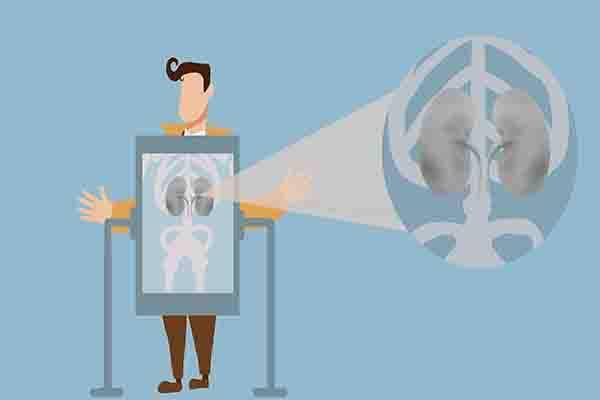The kidney is an important organ in the human body, it can metabolize toxins through urination, maintaining the stability of the internal environment of the body. Unhealthy dietary habits can lead to kidney disease, weakening the role of metabolizing toxins, thus leading to uremia.
According to statistical data, the probability of males getting uremia is 1.5 times that of females, which is related to male physiological structure and environmental factors. Since the kidney metabolizes toxins through urination, we can certainly use it to understand the health of the kidneys.
What is the normal amount of urine for men to pass each day?
The frequency of urination is proportional to the amount of water consumed. If we ensure a normal intake of water every day, the frequency of urination will be within a normal range. Under normal circumstances, men consume about two liters of water per day, some of which is excreted through sweat, while the remaining roughly one liter of water passes through the digestive tract, filtered by the kidneys, and finally excreted in the form of urine. If a man urinates 5-10 times a day, his kidneys are healthy. Excessive or insufficient urination, as well as insufficient urination each time, indicate kidney problems.
Men who urinate excessively may be due to diabetes, as diabetes can lead to excessive drinking, which naturally leads to increased urination. Stimulation from inflammation can also cause increased urination, such as cystitis, urethritis, and complications caused by urinary stones, bladder stones, and kidney stones.
Men who urinate too little may be due to urine not being timely excreted from the body and instead reabsorbed and utilized by the kidneys. In this case, the body cannot properly detoxify through urine, and repeated absorption also increases the burden on the kidneys, increasing the risk of uremia in men.
What symptoms herald the onset of uremia?
Like all diseases, uremia also requires early detection and treatment. The early symptoms of uremia are quite obvious. People with uremia will experience local swelling, which is one of the most obvious symptoms of uremia. The kidneys are responsible for excreting waste liquids, but when the kidneys are damaged, they cannot promptly excrete these fluids from the body, leading to their reabsorption by the kidneys and their entry into the body’s surface. If you wake up with facial swelling or inexplicable swelling of the hands and feet in the afternoon, it may be uremia.
Instability of blood pressure and hypertension are also symptoms of uremia. In addition to its role in removing water, the kidneys also eliminate excess sodium from the body. When there are problems with the kidneys, sodium may deposit excessively in the body, stimulating the body to secrete substances that increase blood pressure. Therefore, people with early-stage uremia usually have elevated blood pressure.
People experiencing nausea and vomiting should be wary of whether they have uremia if their urine is abnormal. This is because kidney problems can cause gastrointestinal complications, especially intestinal inflammation. Inflammation of the intestines can stimulate symptoms such as nausea and dry heaving.
Chronic fatigue is also a manifestation of uremia. If you are well-rested and not overworked, but still experience mental and physical fatigue, you should pay attention to whether your kidneys have problems. All of the above points should be taken seriously if any of them occur and prompt you to seek timely medical examination and treatment to protect the kidneys and prevent the possibility of the condition worsening.
How can we protect the kidneys and prevent uremia?
Drink plenty of water. Drinking plenty of water can promote metabolism, help the kidneys timely excrete toxins from the body, and cleanse the kidneys, strengthening kidney function.
Do not misuse medications. Many men are overly concerned about their kidney health, believing that any minor discomfort is a kidney problem and taking kidney tonics indiscriminately, which can cause significant harm to the kidneys. Moreover, some medications have side effects that affect the kidneys, so it is important to carefully follow medical advice before taking medication and avoid taking medication indiscriminately.
If you have friends with hypertension, pay attention to blood pressure control, as high blood pressure can cause thickening of the renal artery intima and damage kidney function.


